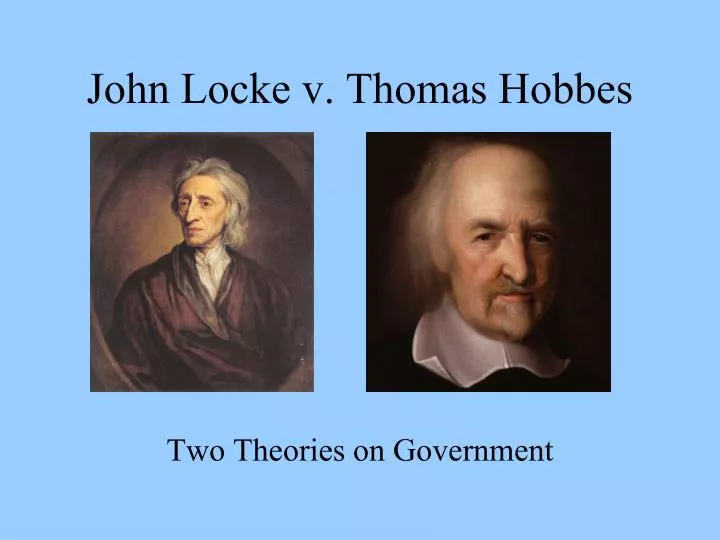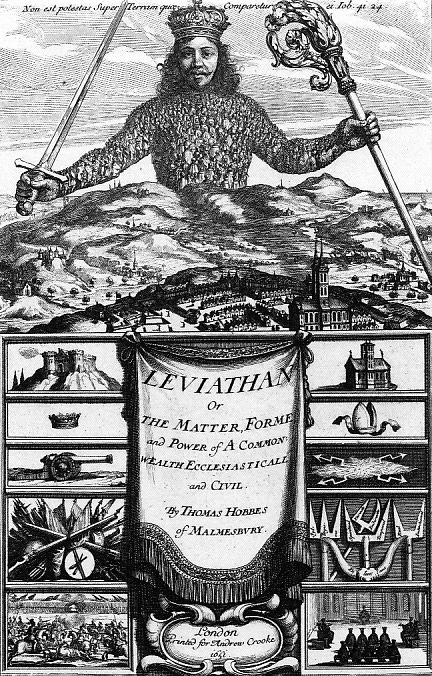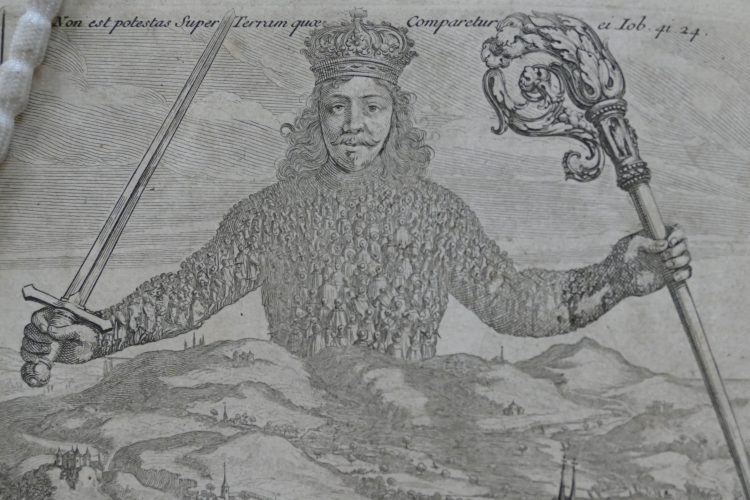The English philosopher Thomas Hobbes (1588-1679) is best known for his political thought, and deservedly so. His vision of the world is strikingly original and still relevant to contemporary politics. His main concern is the problem of social and political order: how human beings can live together in peace and avoid the danger and fear of
Law Define: Thomas Hobbes Absolute Sovereignty
One such man was John Locke. John Locke (1632-1704), in his Second Treatise of Civil Government, declared that Hobbes’ description of life before government was only half right. While the state of nature might be a state of war, Locke argued that it could just as easily be characterized by “peace, goodwill, mutual assistance, and preservation.

Source Image: jamesbishopblog.com
Download Image
Portrait of Thomas Hobbes. Thomas Hobbes’s moral and political philosophy is constructed around the basic premise of social and political order, explaining how humans should live in peace under a sovereign power so as to avoid conflict within the ‘state of nature’. Hobbes’s moral philosophy and political philosophy are intertwined; his moral thought is based around ideas of human

Source Image: slideserve.com
Download Image
Hobbes vs. Lock’s Political Theories | Differences & Influences – Lesson | Study.com
This week we’re thinking about Thomas Hobbes and his views about citizenship and the state. Hobbes famously said that life in the state of nature would be “solitary, poor, nasty, brutish, and short.”. By “state of nature,” he meant life without any kind of government. Essentially, he’s saying that we need to be governed if our lives

Source Image: slideserve.com
Download Image
What Type Of Government Did Hobbes Believe In
This week we’re thinking about Thomas Hobbes and his views about citizenship and the state. Hobbes famously said that life in the state of nature would be “solitary, poor, nasty, brutish, and short.”. By “state of nature,” he meant life without any kind of government. Essentially, he’s saying that we need to be governed if our lives
In modern times, this concept is similar to the idea of “anarchy.”. Because Hobbes maintained a negative view of human nature, he believed that the state of nature was a war of all against all. As he states: “the condition of man…is a condition of war of every one against every one” (Cahn, 295). John Locke, in contrast, did not share
PPT – John Locke v. Thomas Hobbes PowerPoint Presentation, free download – ID:5782312
What Hobbes calls the “laws of nature,” the system of moral rules by which everyone is bound, cannot be safely complied with outside the state, for the total liberty that people have outside the state includes the liberty to flout the moral requirements if one’s survival seems to depend on it.
Summary Thomas Hobbes – Leviathan | 12min Blog

Source Image: blog.12min.com
Download Image
Censorship and Information Control | St Edmund Hall
What Hobbes calls the “laws of nature,” the system of moral rules by which everyone is bound, cannot be safely complied with outside the state, for the total liberty that people have outside the state includes the liberty to flout the moral requirements if one’s survival seems to depend on it.

Source Image: seh.ox.ac.uk
Download Image
Law Define: Thomas Hobbes Absolute Sovereignty
The English philosopher Thomas Hobbes (1588-1679) is best known for his political thought, and deservedly so. His vision of the world is strikingly original and still relevant to contemporary politics. His main concern is the problem of social and political order: how human beings can live together in peace and avoid the danger and fear of

Source Image: lawdefine.blogspot.com
Download Image
Hobbes vs. Lock’s Political Theories | Differences & Influences – Lesson | Study.com
Portrait of Thomas Hobbes. Thomas Hobbes’s moral and political philosophy is constructed around the basic premise of social and political order, explaining how humans should live in peace under a sovereign power so as to avoid conflict within the ‘state of nature’. Hobbes’s moral philosophy and political philosophy are intertwined; his moral thought is based around ideas of human

Source Image: study.com
Download Image
Why Do We Need Government? Part One: Thomas Hobbes – The Liberty Belle
Hobbes believed that a government headed by a king was the best form that the sovereign could take. Placing all power in the hands of a king, Hobbes argued, would mean more sure and consistent exercise of political authority. Hobbes also claimed that the social contract was an agreement only among the people and not between them and their king.

Source Image: thelibertybellenc.com
Download Image
How did Hobbes justify the legitimacy of governments and the absolute power of sovereigns within those governments? – Quora
This week we’re thinking about Thomas Hobbes and his views about citizenship and the state. Hobbes famously said that life in the state of nature would be “solitary, poor, nasty, brutish, and short.”. By “state of nature,” he meant life without any kind of government. Essentially, he’s saying that we need to be governed if our lives

Source Image: quora.com
Download Image
AP EURO Unit #2 – Absolutism Lesson #6a Thomas Hobbes John Locke – ppt download
In modern times, this concept is similar to the idea of “anarchy.”. Because Hobbes maintained a negative view of human nature, he believed that the state of nature was a war of all against all. As he states: “the condition of man…is a condition of war of every one against every one” (Cahn, 295). John Locke, in contrast, did not share

Source Image: slideplayer.com
Download Image
Censorship and Information Control | St Edmund Hall
AP EURO Unit #2 – Absolutism Lesson #6a Thomas Hobbes John Locke – ppt download
One such man was John Locke. John Locke (1632-1704), in his Second Treatise of Civil Government, declared that Hobbes’ description of life before government was only half right. While the state of nature might be a state of war, Locke argued that it could just as easily be characterized by “peace, goodwill, mutual assistance, and preservation.
Hobbes vs. Lock’s Political Theories | Differences & Influences – Lesson | Study.com How did Hobbes justify the legitimacy of governments and the absolute power of sovereigns within those governments? – Quora
Hobbes believed that a government headed by a king was the best form that the sovereign could take. Placing all power in the hands of a king, Hobbes argued, would mean more sure and consistent exercise of political authority. Hobbes also claimed that the social contract was an agreement only among the people and not between them and their king.